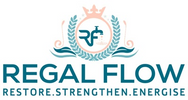
Are Countertop Water Filters Worth It? A Cost & Benefit Breakdown
Tired of tap water that tastes like a swimming pool? A countertop water filter might be your new best friend! Short answer: Yes, they’re worth it—if you pick the right one. They improve taste, remove nasties, and save money. Keep reading for the best options and how to choose the right countertop water dispenser!
Are Countertop Water Filters Worth It? Evaluating Cost and Benefits
Introduction: Evaluating the Cost and Benefits
If you’ve ever poured yourself a glass of tap water, taken a sip, and pulled a face, you’re not alone. Many UK households deal with water that tastes a bit off, smells like a swimming pool, or leaves limescale lurking in the kettle.
A countertop water filter promises a simple fix—no plumbing, no hassle, just cleaner, fresher water. But is it worth the money?
To find out, let’s weigh up the costs, benefits, and whether a countertop filter is the right fit for your home.
Defining "Worth It" in Terms of Water Filtration
What makes something “worth it”? For some, it’s about saving money. For others, it’s about improving health or cutting down on plastic waste.
A good water filter should tick multiple boxes—better taste, fewer contaminants, and a convenient setup. But not all filters are created equal.
The real question is: does it match your needs? Let’s break it down.
Understanding Your Filtration Needs
Not all tap water is the same. Some areas in the UK have hard water, which clogs kettles with limescale, while older pipes might leach tiny amounts of lead.
A basic carbon filter can remove chlorine and improve taste, but if you want to strip out more contaminants, a reverse osmosis system might be needed.
Before you buy, check your local water quality report. Knowing what’s in your water helps you pick the right filter.
Cost Analysis: Initial and Ongoing Expenses
Purchase Price of the Filter
Countertop water filters come in all price ranges. Basic models start at around £30, while premium ones—like Berkey—can go over £100.
The price difference usually comes down to filtration power. If you just want to improve taste, a budget-friendly option will do. But if you’re after heavy-duty purification, expect to pay more.
Filter Replacement Costs
Filters don’t last forever. Most need replacing every two to three months, with replacement cartridges costing anywhere from £10 to £40.
Some brands, like ZeroWater, include a built-in tester so you know exactly when to change the filter—helpful for avoiding unnecessary swaps.
Over a year, filter replacements can add up, but it’s still cheaper than buying bottled water.
Maintenance and Cleaning Costs
Most countertop filters require little maintenance—just a rinse and occasional deep clean. Gravity-fed filters may need scrubbing now and then, but nothing too demanding.
Compared to under-sink systems that require professional installation, a countertop filter is the low-maintenance choice.
Comparison with Bottled Water and Other Options
A family that spends £300+ per year on bottled water could save at least £150 by switching to a countertop filter. That’s not just money saved—it’s fewer plastic bottles clogging up landfills.
Compared to under-sink or whole-house filtration, countertop filters are cheaper and easier to set up. Perfect if you’re renting or don’t want to drill holes in your kitchen.
Benefits Analysis: Quantifying the Advantages
Improved Water Quality and Taste
Filtered water can taste miles better. No more chlorine aftertaste or weird metallic hints.
If you’ve ever refused to drink tap water because it just “doesn’t taste right,” a good filter could make all the difference.
Convenience and Accessibility
No installation, no tools—just pop it on the counter and start filtering. Ideal for renters, small kitchens, and anyone who doesn’t want to fiddle with plumbing.
Plus, they’re portable. Going on holiday? Take your filter jug with you and avoid dodgy-tasting hotel water.
Health Benefits
Many filters remove nasties like lead, pesticides, and microplastics, making your drinking water safer.
For families with young kids or people with health concerns, this can be a real game-changer.
Environmental Impact (Reduced Plastic Use)
The average UK household bins hundreds of plastic bottles a year. Switching to filtered tap water cuts down on waste and helps the planet.
It’s a win-win: better water for you, less plastic for the environment.
Factors Influencing Value
Water Quality in Your Area
If your tap water is already high-quality, a simple filter will do the trick. But if you live in an area with hard water or old pipes, a more advanced system might be worth considering.
Checking your water report (or just looking at the state of your kettle) can give you clues about what kind of filter you need.
Frequency of Use
If you drink a lot of water, make tea and coffee daily, and use filtered water for cooking, you’ll get more value from a filter.
For occasional use? You might not notice as much difference, so a cheaper option could be enough.
Type of Filter
Carbon filters remove chlorine and improve taste. Reverse osmosis filters go further, removing fluoride, heavy metals, and more.
It’s about finding the right balance between cost, convenience, and filtration power.
Real-World Scenarios and ROI
Home Use
For families, a countertop water filter means instant access to cleaner water, fewer plastic bottles, and long-term savings.
It’s a small investment that pays off every time you fill your glass.
Office Use
Workplaces with filtered water stations encourage employees to stay hydrated while reducing spending on bottled water.
A one-time purchase can save a business hundreds of pounds a year.
Addressing Common Concerns
Maintenance Effort
Worried about upkeep? Most filters just need a quick rinse or occasional scrub.
Compared to under-sink systems that require professional servicing, countertop models are refreshingly low-maintenance.
Effectiveness Claims
Not all filters are equal. Some only improve taste, while others remove serious contaminants.
Look for NSF or UKAS-certified systems to make sure your filter does what it claims. Checking reviews and lab test results is also a smart move.
Conclusion: Determining If a Countertop Water Filter Aligns with Your Needs
So, is a countertop water filter worth it?
If you’re tired of weird-tasting tap water, spending money on bottled water, or worrying about contaminants, then yes, it’s a solid investment.
It’s affordable, easy to use, and better for the environment. And with so many options available, you can find one that fits your needs and budget.
The real question isn’t whether a countertop water filter is worth it—it’s why you haven’t got one already.
More Countertop Water Dispenser info we think you'll love
Countertop vs. Freestanding Water Dispensers: Which Is Right for You?
Understanding Filtration Systems in Countertop Water Dispensers
Space and Design Considerations for Countertop Water Dispensers
Do countertop water filtration systems work?
How does a countertop water filter work?
The Ultimate Guide to Choosing a Countertop Water Dispenser


Leave a comment